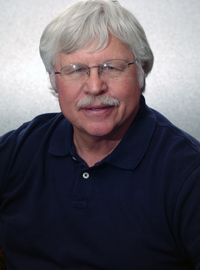Japanese American WWII Experience
Historian Delivers Lecture on Nikkei History Oct. 19
Sept. 27, 2011 :: No. 30
What: Historian Arthur A. Hansen, emeritus professor of history at Cal State Fullerton, and Chizuko Judy Sugita DeQueiroz, who lived in an internment camp as a child, will deliver a free, public talk on “The World War II Experience of Orange County Nikkei in History and Memory.”
When: Wednesday, Oct. 19
4-5 p.m.: Exhibit viewing and entertainment
5 p.m.: Recognition of OC Agricultural and Nikkei Heritage Museum benefactors and visionaries
5:30 p.m.: Lecture
Where: Fullerton Arboretum, 1900 Associated Road, Fullerton
Background: Chizuko Judy Sugita DeQueiroz has lived in California her entire life except for 3 1/2 years (1942-1945) during World War II when she and her family were forcibly removed from the West Coast and confined by the U.S. government in the Poston, Ariz., internment camp. On Aug. 6, 1945, most of her father’s family members in his hometown of Hiroshima, Japan, were killed by the U.S. atomic bombing of that city. In 2004, DeQueiroz published a book, “Camp Days, 1942-1945,” her memoir, in paintings and words, about her years of incarceration.
 Caption: Arthur A. Hansen Download Photo
Caption: Arthur A. Hansen Download Photo
Arthur A. Hansen, a former senior historian at the Japanese American National Museum, will focus his talk on the life and death of Orange County’s most famous hero in World War II, Kazuo Masuda. His presentation will highlight the racist reception accorded his sister Mary when, after Kazuo’s battlefield death in Italy, she attempted to investigate Orange County conditions prior to her family's return there from the Gila River Relocation Center in Arizona.
Hansen’s presentation also will cover:
- The personal visit of Lt. Gen. Joseph W. Stilwell to the Fountain Valley farmhouse of the Masuda family on Dec. 8, 1944, to present Kazuo’s Distinguished Service Cross to Mary Masuda, an event followed by a rally at the Santa Ana Bowl in which one speaker was Capt. Ronald Reagan;
- When Masuda’s body was transported in 1948 from Italy to Orange County for interment, the Westminster Memorial Cemetery manager declared that because it was a racially restricted cemetery, Sgt. Masuda could not be buried in a “desirable” cemetery section, a decision reversed after intense and supportive public reaction; and
- The successful culmination of the Japanese American redress and reparations movement on Aug. 10, 1988, when President Reagan, reminded of his words at the Santa Ana Bowl in 1944, signed the Civil Liberties Act of 1988. Reagan’s words at that 1944 rally: “Blood that has soaked into the sands of a beach is all of one color. America stands unique in the world, the only country not founded on race, but on a way — an ideal. Not in spite of, but because of our polyglot background, we have had all the strength in the world. This is the American way.”
Additional: The lecture is one of several sponsored by the university’s Center for Oral and Public History, as part of the exhibit “New Birth of Freedom: Civil War to Civil Rights in California” at the Fullerton Arboretum's Orange County Agricultural and Nikkei Heritage Museum. The exhibit features oral histories and artifacts dating back to the Civil War.
Info: Call 657-278-3673 to reserve a seat. For more details, contact Maria Figueroa at mafigueroa@fullerton.edu.
Media Contact: Mimi Ko Cruz, Public Affairs, 657-278-7586 or mkocruz@fullerton.edu
